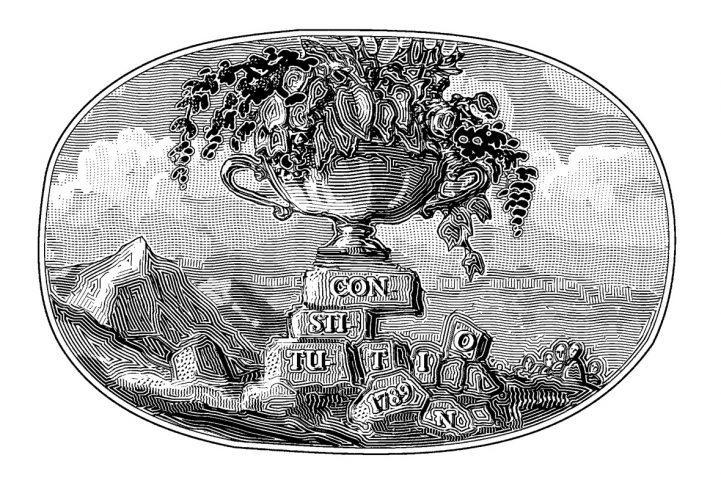The tendentious and obscurantist jargon of the academy is an old story, but makes for a great trivia challenge: invent a completely implausible title for a scholarly journal, and odds are that it actually exists. My favorite at the moment is the International Journal of Fuzzy Systems, which—according to the social science equivalent of baseball’s “sabremetrics”—has an “impact factor” of 1.095. Converted to actual baseball, that appears to be the equivalent of a .125 batting average, or a pitching ERA around 8.5.
Closely related to the phenomenon of topical journals sliced more finely than deli ham is the scholarly fixation with the trivial, obvious, or irrelevant. This is not uniformly the case, of course. There have been some sensible attempts, for instance, to apply quantitative measurement to George Kelling and James Q. Wilson’s famous “broken windows” theory of crime prevention. It will not surprise that these analyses have yielded conflicting and contested conclusions. For underneath the dispute lurks the implicit rejection of common sense—that the idea of maintaining outward signs of public order is without merit unless validated by a multiple regression test. But the newest way to avoid engagement with the sensible world is through the inflation and trendification of academic job titles. It is no longer enough just to be a plain vanilla “professor of philosophy” or “professor of sociology.” Academics are now starting to create fiefdoms out of politicized clichés that don’t even rise to the level of a dubious sub-subfield. Several universities (e.g., the University of Dayton, San Francisco State, and Bristol University in the United Kingdom) now feature a “professor of social justice,” which seems par for the course for a higher education establishment that has mostly given up on serious treatment of unadorned justice. How long can it be before we see the “Saul Alinsky Chair of Social Justice” at Middlebury College?
“Environmental justice” is the green twin of social justice, and professors of environmental justice are popping up faster than hybrid cars in a California carpool lane. Once upon a time environmental justice focused on recondite concerns about whether trees could somehow have legal standing, but today’s environmental justice community is completely untethered from any practical reality beyond hanging the Koch brothers. It is mostly concerned with the same grievances and resentments of the regular social justice crowd—capitalism—and is easily embarrassed, such as the time I generated applause from a minority audience at an environmental justice forum by pointing out the “disparate impact” of popular environmental land use policies that made housing unaffordable.
More curious is the case of Clive Hamilton, a prominent leftist in Australia, who bears the title “Professor of Public Ethics” at Charles Sturt University. I had occasion recently to ask Professor Hamilton directly what “public ethics” is, and how it differs from private ethics, or just…ethics. Hamilton said he gets that question a lot, and doesn’t have a good answer.
Leo Strauss once described his inquiries as belonging to the “sociology of knowledge,” and, lo and behold, we now have the appropriately named “Auguste Comte Professor of Social Epistemology” in the sociology department at the University of Warwick, currently occupied by Steve Fuller. Professor Fuller is a reasonable fellow—I’ve met him—and perhaps there’s something appropriate about “social epistemology,” given that the main current of postmodern and nihilist philosophy today can rightly be considered anti-social epistemology.
* * *
Nearly all contemporary universities have offices of “diversity” and a squad of deans and administrators to go with them, but “diversity” is making a bid to become an academic field and not just a color coding racket. Seattle University has the Wismer Professor for Gender and Diversity; Texas A&M has a professor of diversity science and well-being (diversity science?), and Colgate has the Arnold Sio Chair in Diversity and Community. And when plain sociology just won’t do, you can emulate the University of Wisconsin at Madison, which features a professor of civil society and community studies.
Without a doubt the largest pseudo-academic field goes under the banner of “sustainability,” and universities are racing to have professors of sustainability to go along with their campus-wide “commitment” to sustainability. “Sustainability” long ago reached escape velocity from the modest calling of environmental resource management, as environmental scientist Timothy O’Riordan warned way back in 1988: “It may only be a matter of time before the metaphor of sustainability becomes so confused as to be meaningless, certainly as a device to straddle the ideological conflicts that pervade contemporary environmentalism.”
The terminal vagueness of sustainability has become its chief attraction, as sustainability is now the perfect academic catch-all for organizing all of a university’s politicized sentiments under one roof. The National Association of Scholars recently produced a copious report detailing how sustainability programs have been hijacked by the usual anti-capitalist and anti-liberal crusades, and how even seemingly practical campus programs to promote resource efficiency are implemented without any semblance of cost-effectiveness rigor.
The irony of this coming from institutions whose soaring costs make them the epitome of unsustainability is conspicuous to everyone who isn’t an academic administrator. The theme of the higher education bubble may be overworked—unlike most professors at elite institutions—but the mushrooming ranks of professors of sustainability are likely to mark the blowoff stage of academic decay. The proof will be when, in response to someone saying he got a degree in “sustainability,” the natural answer will be: “Oh—so you’re unemployed?”





